Invisible Boy, The (1957)
“Don’t make such a fuss; he’s probably doing this just to get attention.”
|
Synopsis: |
|
Genres, Themes, Actors, and Directors:
Review: And if Robby the Robot dictates that everything within Eyer’s nearby “electromagnetic field” becomes invisible, too, why doesn’t the spoon he uses to noisily slurp soup in front of his parents disappear? However, many other elements about the film’s preposterous and convoluted storyline — which at first glance make one nearly guffaw from hysterics — turn out to have a “deeper” meaning, if you’re looking for it. In essence, this entire film could be viewed as Eyer’s dream, given that he falls asleep not too far into the storyline: … and such is the convention that we’ve learned to expect in movies — except… (sorry for the spoiler; it’s relatively important to my argument here) … he never “wakes up” at the end, thus leaving the situation intentionally (?) vague. As argued by one user on IMDb, Timmie (Eyer) not only becomes literally invisible; he starts off as “invisible” to his overworking father, who — as clearly established during the film’s opening sequences — views his non-mathematically-minded son as a huge disappointment. Thus, everything that happens after Timmie falls asleep in front of the Super Computer (where his father has placed him for some extra tutoring) could be seen as simply a manifestation of Timmie’s fantasies. He’s finally able to beat his father at chess: … he manipulates a robot — his new best friend — into doing his bidding (sending him up in a kite), even when this goes against the robot’s prime directive to not place any human in harm’s way:
Indeed, everything about Timmie’s invisibility and the subsequent drama that ensues — involving a fairly serious amount of threat to Timmie’s very existence, not to mention the state of the Free World — occurs on a level that one soon realizes is not merely laughably implausible, but very much from a child’s perspective. I won’t say more here, since I’ve already spoiled enough, but suffice it to say that if you watch the film from this point of view, you may find yourself “appreciating” it on an entirely different level. In fact, it’s enough of a unique approach to the material that I found myself shifting my vote to “must see” for this reason alone; otherwise I would simply relegate it to a movie of minor historical interest for science fiction fans. Redeeming Qualities and Moments: Must See? Categories
Links: |
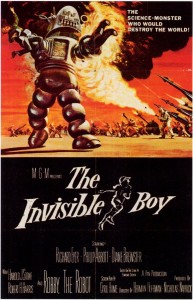
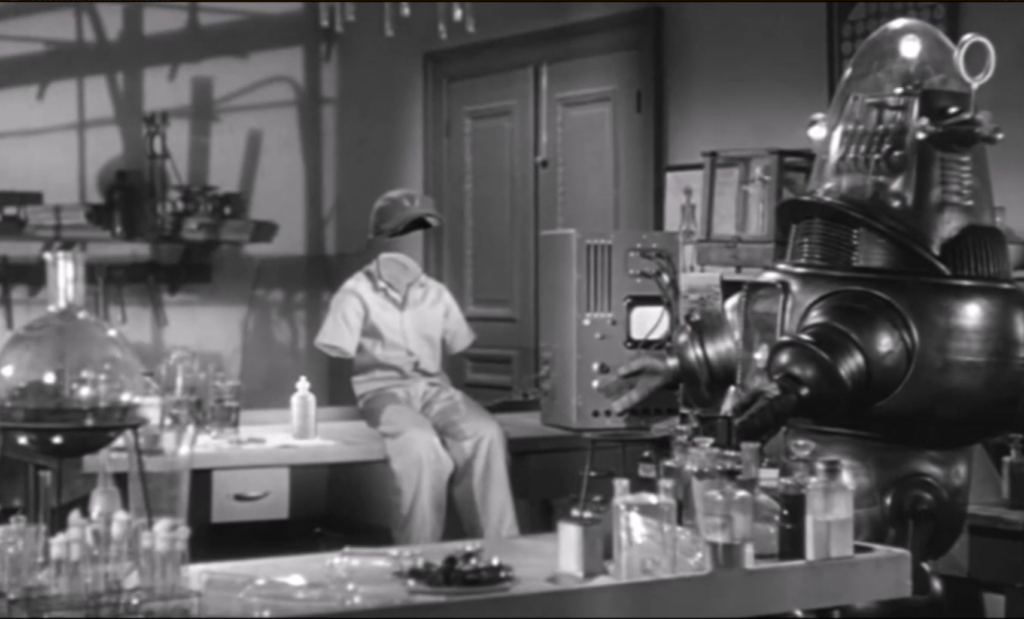
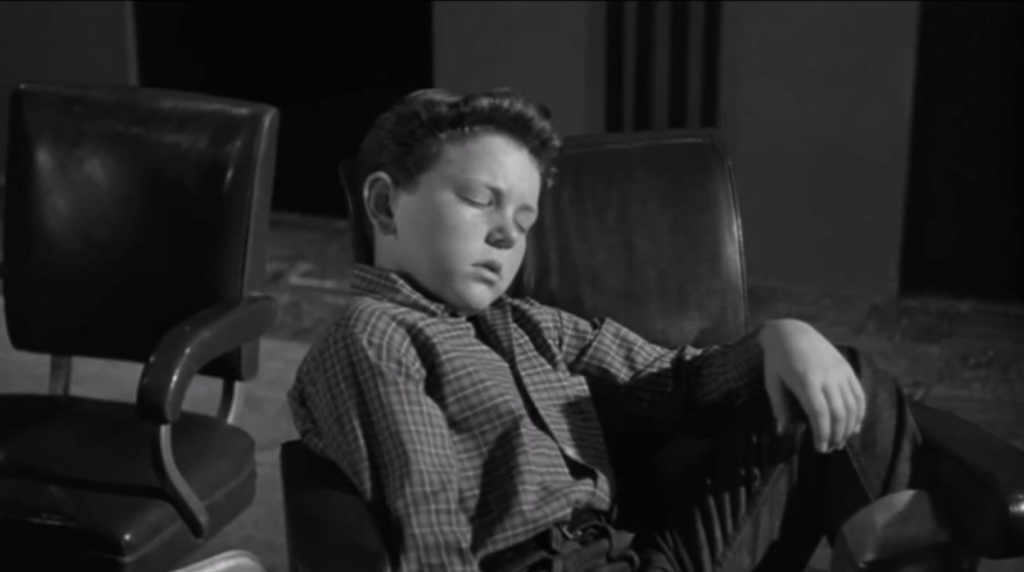
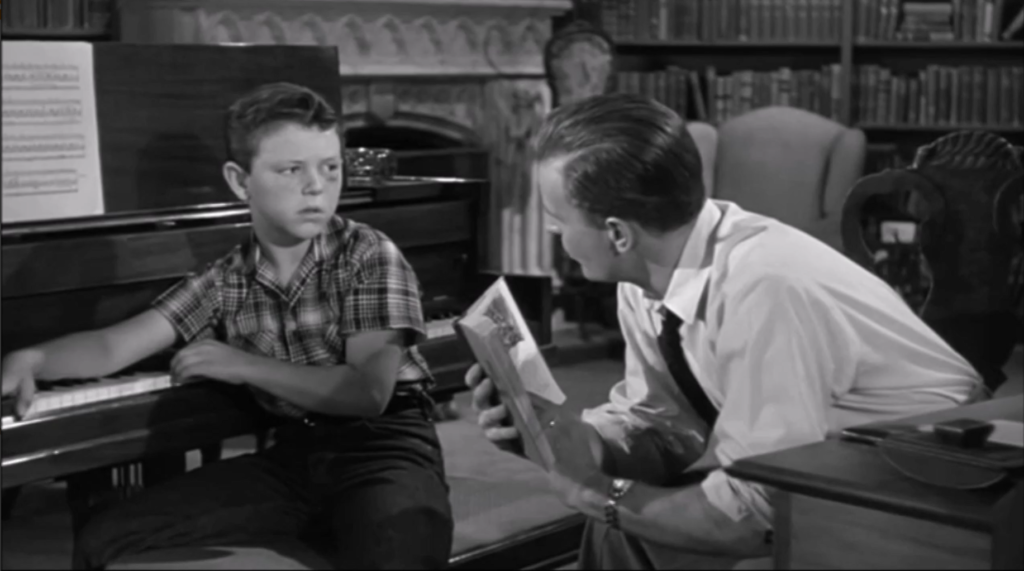
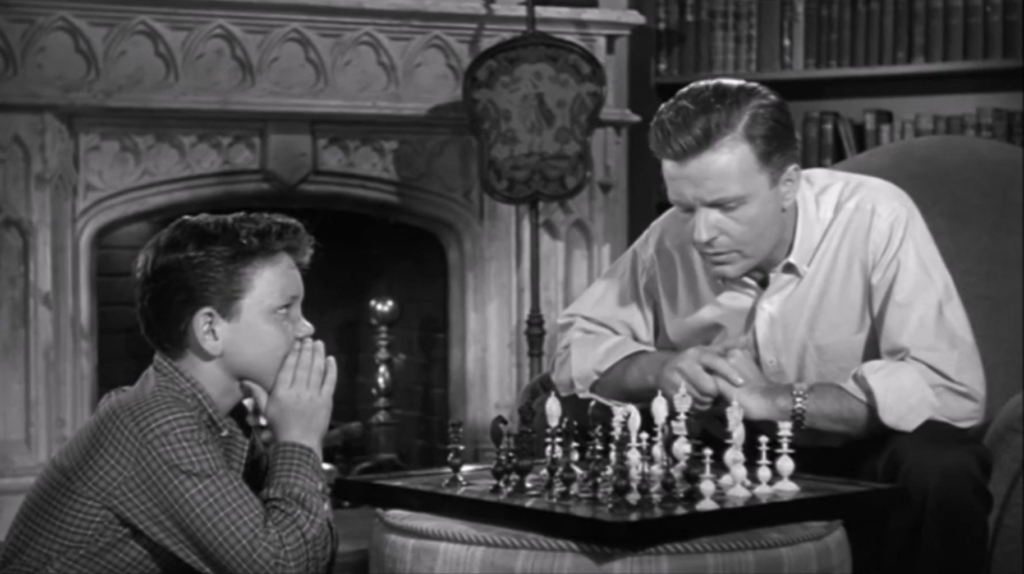
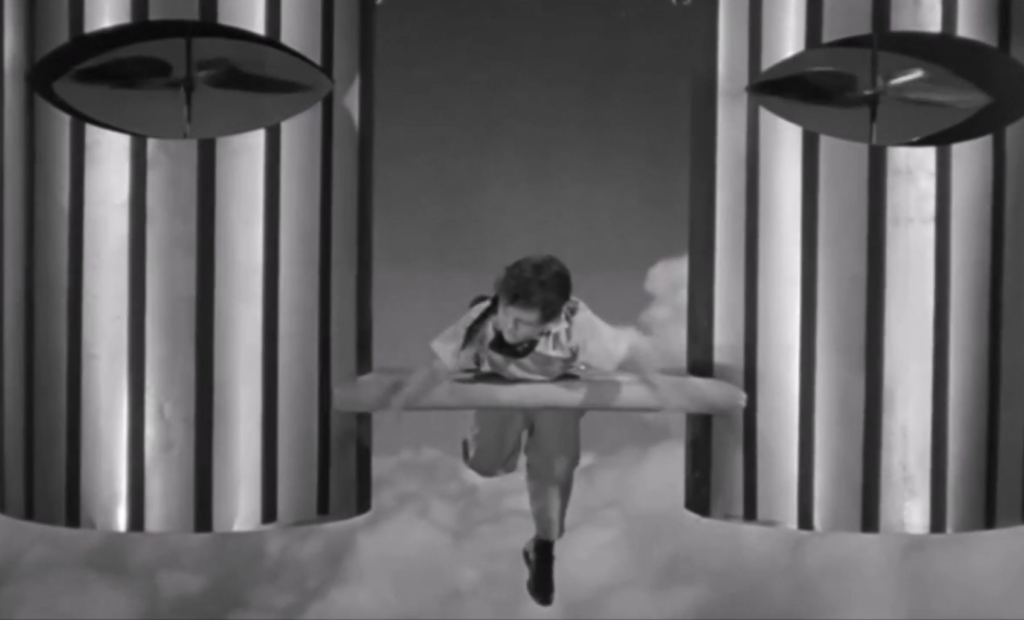
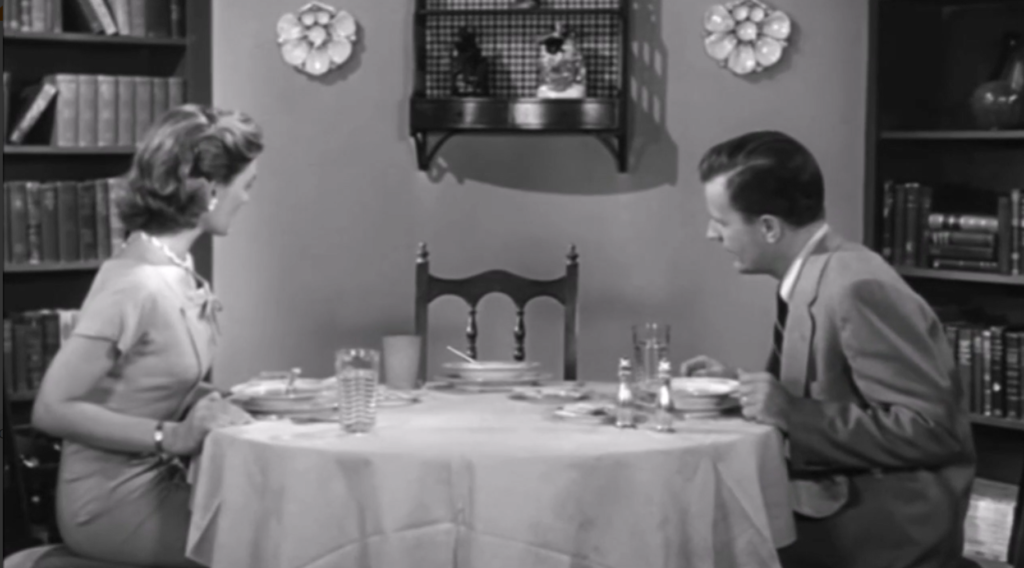
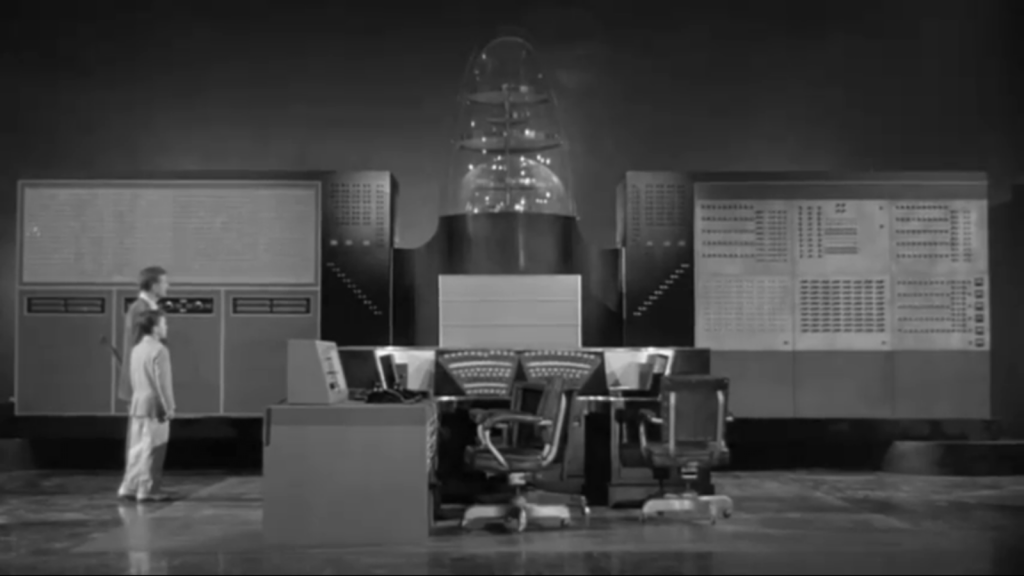
One thought on “Invisible Boy, The (1957)”
Very much a must! What a ‘fun’ flick!
I use the word ‘fun’ in broad terms. I saw this once when I was a kid – and it never crossed my path til now. Call me crazy but it makes complete sense to me.
[I also find it personally interesting that I have revisited it just after revisiting ‘Fiend Without a Face’: both films have the theme of what can come from ‘pure thought’.]
To me, this film is a simple fantasy tale of an attempt at world domination. But the film affects me on a singular level. It’s a combination of two things I love about film: first, it’s the kind of flick you should know almost nothing about before seeing it (in order to fully appreciate it); and, second, it lulls you into thinking it’s going to be a certain kind of film (in this case, innocuous), and then turns out to have deceived you. (~which actually has much to do with the plot.)
Oddly, on some level as it progressed early on, I knew there was some…sidetrack afoot…in the first half. But I don’t think I should go beyond saying that.
Except I will say this: I do not buy into the idea that the son is already ‘invisible’ to his father. Far from it. The father appears to never give up trying to reach his son.
Is the film 100% successful on its own terms? No, it fudges once in awhile. But that’s quibbling. This is an intriguing, one-of-a-kind sci-fi tale that could very well benefit from a second look-see. I’m sure glad I did. And, again, I’d like to say more about it, but…naaa. 😉
PS: Eyer – who certainly made too few, yet significant films as a kid – is hilarious! (He left the industry at age 16.)